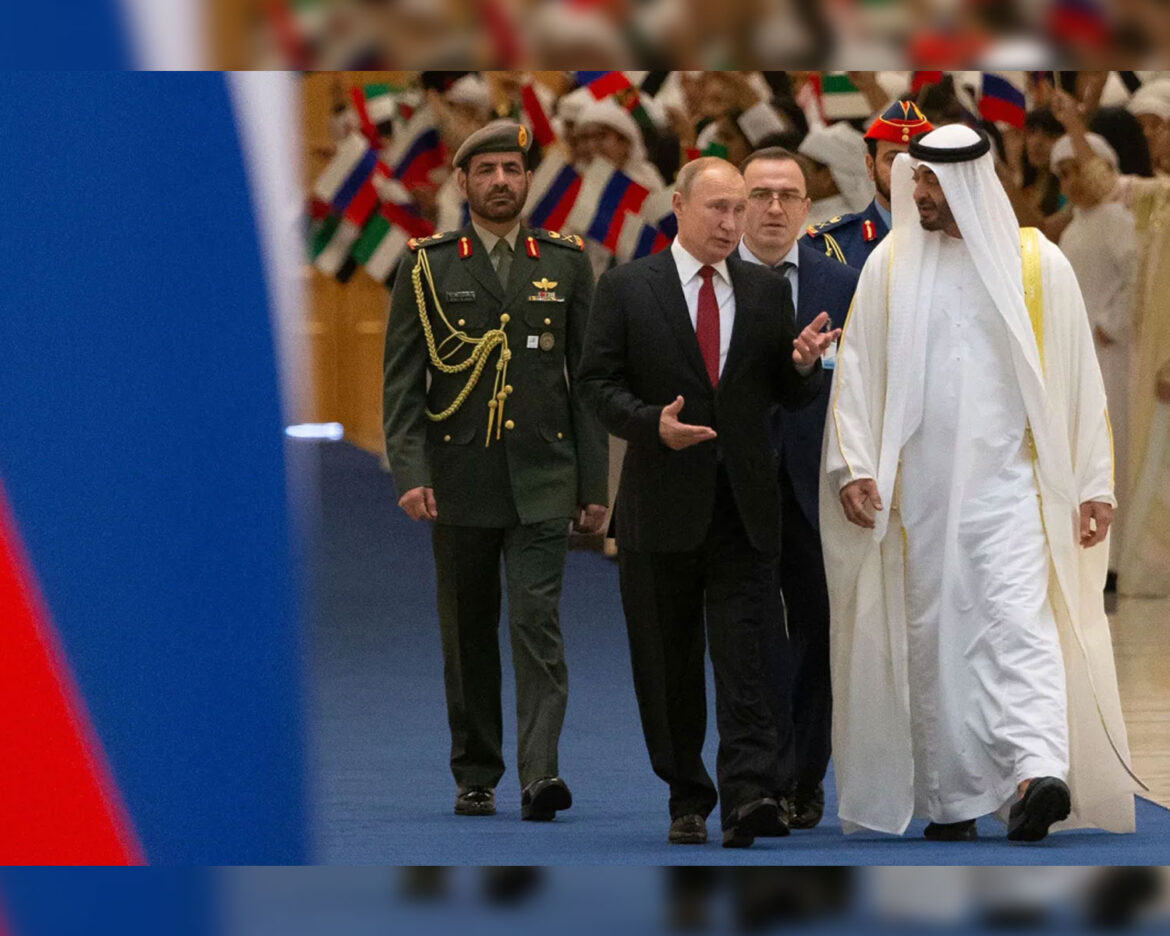Senior officials from Western nations, including the United States, the United Kingdom, and the European Union, have arrived in the United Arab Emirates (UAE) for discussions concerning sanctions on Russia. The visit comes as international concerns grow over goods being exported to Russia that could potentially be utilized in Moscow’s ongoing conflict in Ukraine.
A spokesperson from the US embassy confirmed the visit, stating that it is part of a broader international effort involving various partner countries. The primary focus of these discussions is the implementation of sanctions on Russia. The Wall Street Journal initially reported the visit and emphasized that it forms a part of a collective global initiative to prevent the transfer of critical items like computer chips and electronic components, known as dual-use products, with applications in both civilian and military domains, to Russia.
A senior official from the UAE expressed the nation’s commitment to collaborating with friends and allies to address any concerns regarding sanctions on Russia.
Last week, Nvidia, a leading chip manufacturing company, revealed in a regulatory filing that the US government had imposed additional licensing requirements for its H100 and A100 chips, which are frequently employed in generative artificial intelligence projects, particularly in the Middle East. These new restrictions come amid heightened US concerns about technology transfer to countries subject to sanctions.
Rival chipmaker AMD also reportedly received a letter containing similar restrictions, as reported by Reuters. CNN has initiated contact with AMD for further clarification on the matter.
Currently, it remains unclear which Middle Eastern states are specifically targeted by these additional measures or the reasons behind their imposition. A spokesperson from the US Department of Commerce denied any intentional blockage of chip sales to the Middle East, according to Reuters.
Notably, Saudi Arabia and the UAE have been reported to purchase thousands of Nvidia chips for the development of artificial intelligence software. These reports surfaced in August via the Financial Times, citing sources with knowledge of these acquisitions.
Addressing the chip sale restrictions, a UAE foreign ministry official emphasized the country’s advanced customs system, describing it as “one of the most sophisticated customs systems in the region.” The official added that this system undergoes continuous updates to align with developments in areas such as dual-use and sensitive technologies.
As concerns mount over goods that may potentially aid Russia’s military efforts in Ukraine, the diplomatic discussions between senior Western officials in the UAE underscore the ongoing global efforts to maintain sanctions on Russia and safeguard sensitive technologies from falling into Moscow’s hands.



